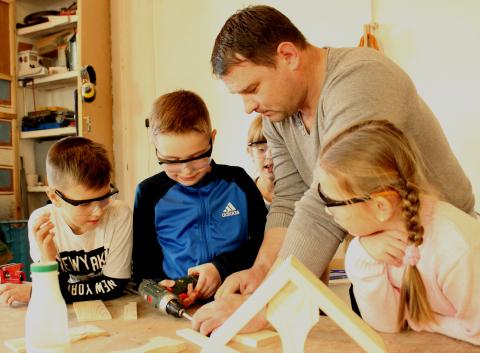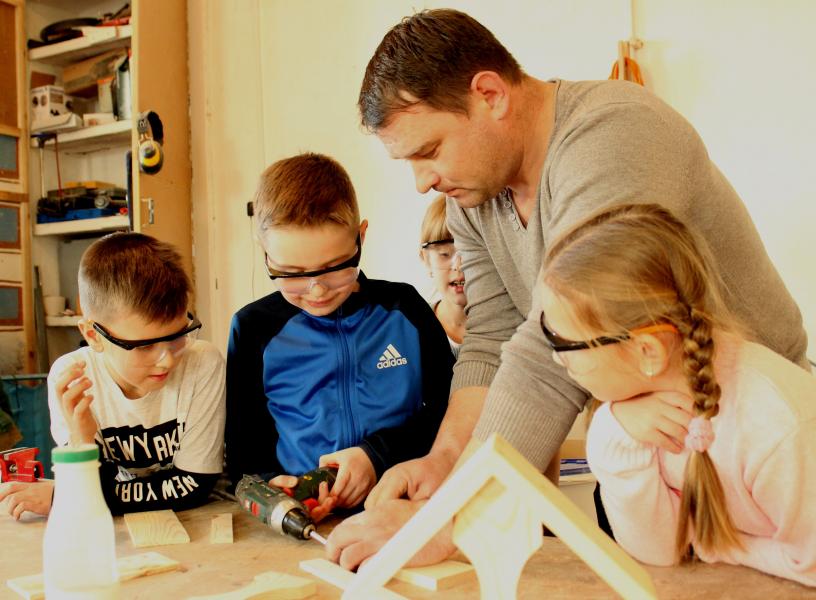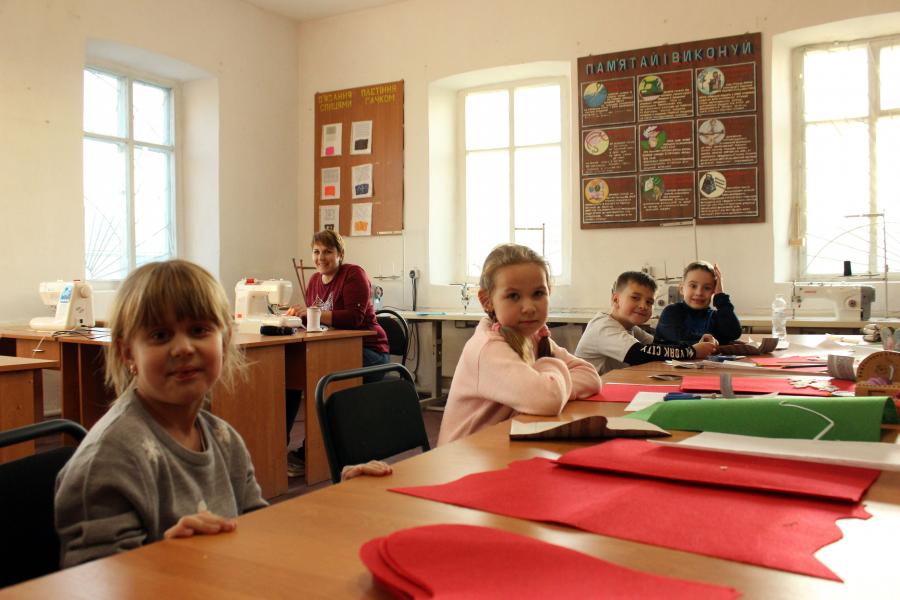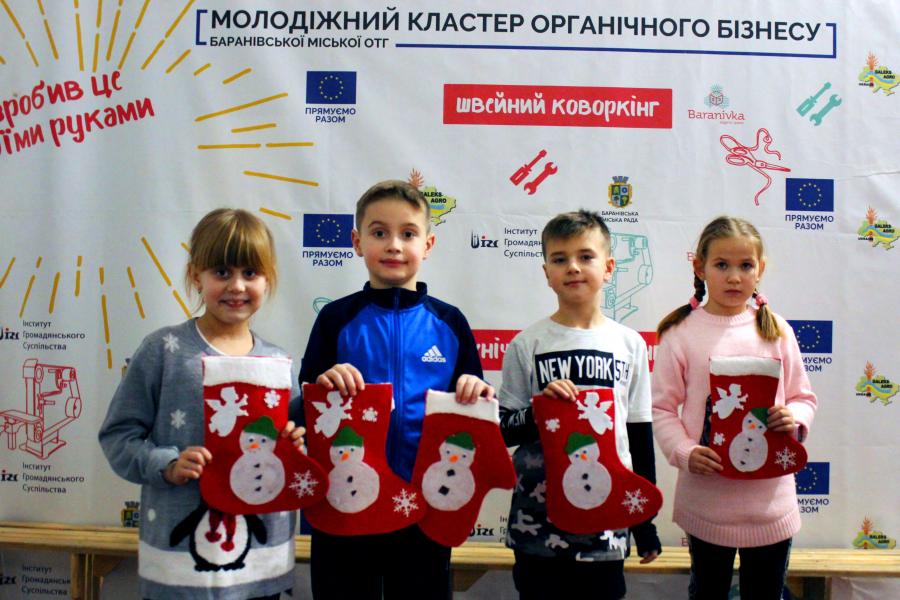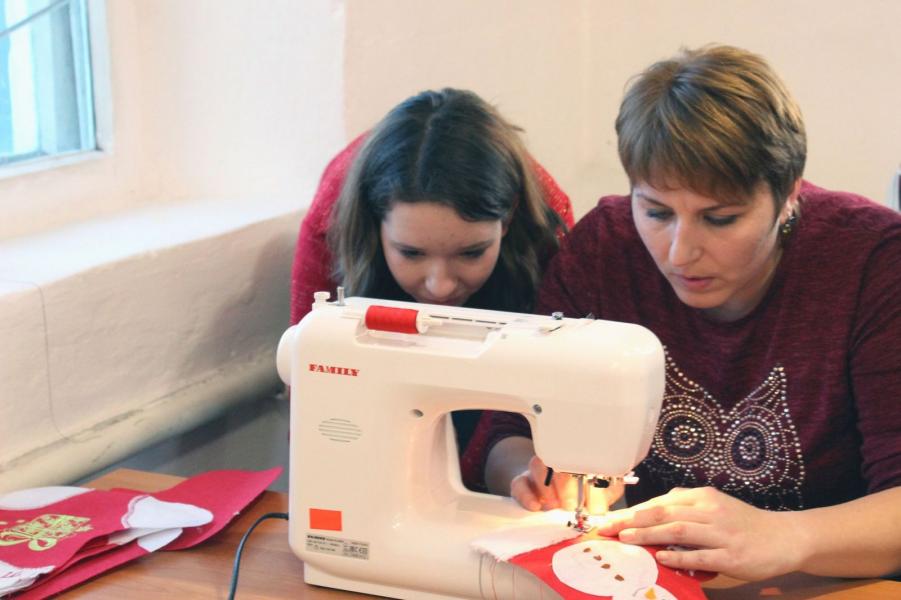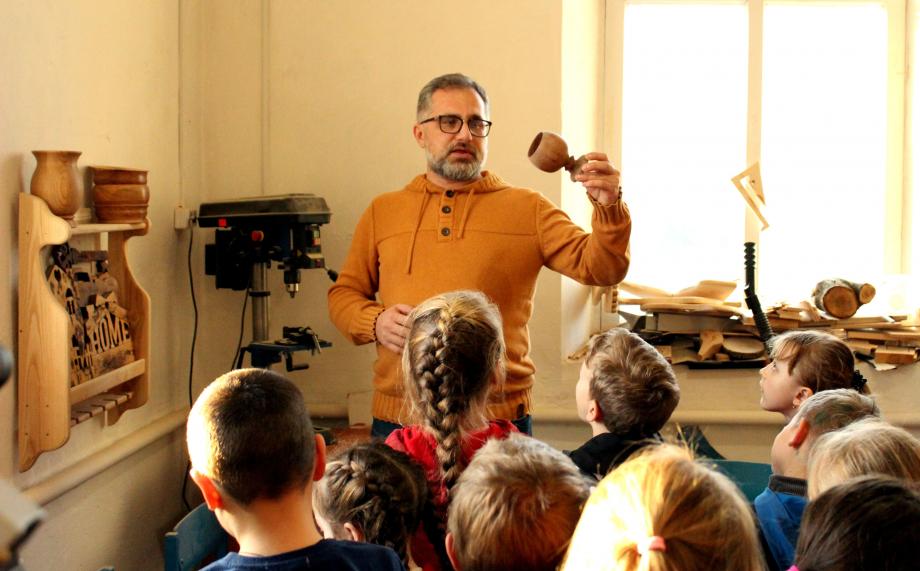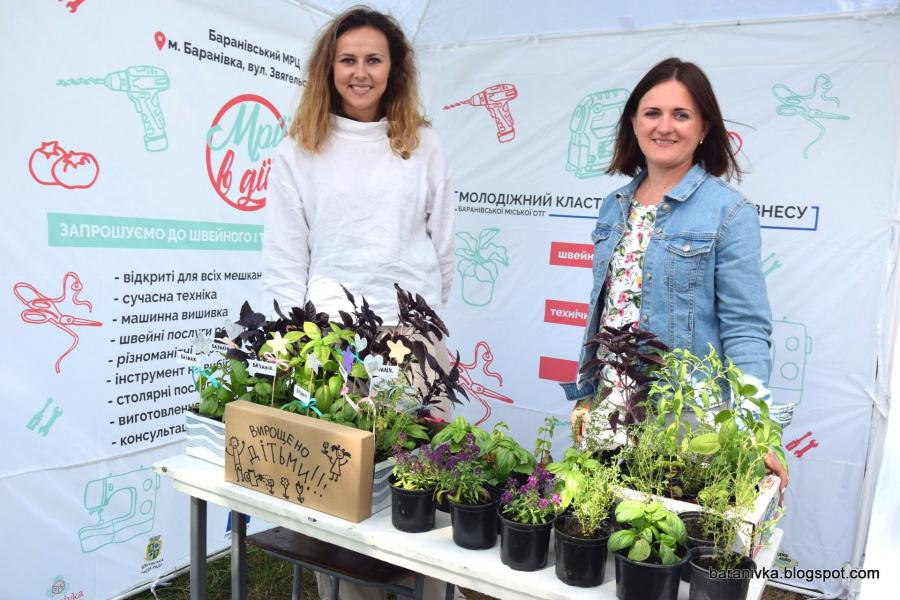The numbers are relentless when it comes to the proportion of Ukrainians living in cities and rural areas in unified territorial communities (UTC): in the last 10 years countryside has lost 16% of its population. Young people go in search of a better life in big cities like Kyiv and Dnipro, or they go abroad as migrant workers. Their reasons are normal and predictable: low income potential in their hometowns and the lack of opportunities for self-realization. Since 2018, however, this emigration is no longer a trend in the case for a small town in Zhytomyr Oblast. For the second year in a row, a pilot project under the European Union's M4EG programme, Mayors for Economic Growth, is being implemented there as part of the EU initiative EU4Business. In just two years the project “Youth-Driven Organic Business Cluster in Baranivka UTC” has provided more than 1,100 school children and 400 adults with opportunities to gain practical professional skills thorough a number of means, including 30 master classes.
In October 2018, the Baranivka City Council, the Institute of Civil Society and the Galex-Agro enterprise joined their efforts and created sewing and technical co-working spaces and a greenhouse with an area of 150 m2 based at a local school. These initiatives were then merged into a new type of educational institution, the Baranivka Interschool Resource Centre. With the support of the EU, the initiators purchased professional brand-name sewing machines and carpentry equipment for the Centre. This, in turn, led to the establishment of a Youth Business Incubator.
“Not only schoolchildren have access to the workshops, but also local youth and seniors,” says Oksana Zagorska, the Action Manager. “They can attend classes and learn how to work with the modern equipment. The idea is to make the school available to all residents of the community.”
What is coworking and how can a community benefit from it?
School coworking space or workshop is a place for education, the mastery of professional knowledge and the development of entrepreneurial potential among teenagers. But equipping workshops that meet modern requirements in each individual school of a community at the expense of the local budget is an exceedingly challenging task.
“The estimated cost of equipping a sewing coworking space is €9,260, for carpentry it’s €24,700, robotics cost €46,300, and 3D modelling is up at €61,700,” Oksana points out. “But if you look at the load of school workshops during the week, you will see that over 60% of the time they are idle. So, investing in equipping workshops looks inefficient because the equipment will not be used at its full potential.”
However, for a small fee, residents of the community can use the equipment to work on their own creative ideas and even sell their products on the community’s website or Facebook page.
“The most creative and enterprising attendees can bring to life their creative ideas under the brand ‘Dreams in Action,’” says Oksana. “The brand name was a result of brainstorming among community residents. They also can sell their products through a Facebook page or online store https://bop.baranivka.info/. What the authors need are ideas and execution.”
A big surprise for everyone was the purchase of a 3D printer, which was not in the Interschool Resource Centre development plan. Thanks to a successful tender conducted by the Civil Society Institute for the purchase of basic equipment, it was possible to save enough money for a 3D printer, which today is being enjoyed by both schoolchildren and adults.
Collaboration with local business and lifebuoy during the COVID crisis
In two years, the skilfulness of the Interschool Resource Centre attendees became so evident that they were able to carry out orders from local businesses. For example, the Baranivka Council ordered 9,500 flower seedlings to be grown in the greenhouse for community flowerbeds, while the sewing coworking space produced overalls for Organic Milk LLC and for employees at a local hairdresser’s.
“What distinguishes our coworking spaces from simple workshops is the commercial component,” says Oksana. “That is, over time, coworking spaces should become independent, self-sufficient platforms for UTC residents to put their creative, technical, and economic potential to good use.”
This is exactly the approach that came in handy during quarantine: the Centre’s staff printed 50 face shields on a 3D printer, which cost 30% below the market value.
“Protective shields are practical and comfortable to use,” says Dr. Ihor Shatrovsky, Chief Physician of the Baranivka Central District Hospital. “Thanks to the support of the town council, equipment from the EU and the skilful staff of the Baranivka IRC, we now have good protective gear.”
In addition to the shields, community residents produced 550 protective masks for hospitals and other unified territorial communities. They also won a tender to sew 8,500 masks of the Caritas Ukraine International Charitable Foundation under the “Support Unified Territorial Communities against the COVID-19 Pandemic” project, which is funded by the U-LEAD with Europe Programme.
Looking into the future
A programme for teenagers called “Easy entrepreneurship!” has also been set up at the Baranivka Interschool Resource Centre. This programme is unique in the oblast and has already become a local centre of gravity for schoolchildren. For the first time, they learned what entrepreneurship and marketing are, how the finances of a project are calculated, and what commercial activity consists of. Many of the students in the program are already active in public and business activities, such as developing school television, modelling and 3D printing of key chains to order, and leading socially important public projects. The main thing is that many of them discovered opportunities for self-realization thanks to the Baranivka project.
This project in Baranivka is one out of six being implemented under the EU programme “Mayors for Economic Growth” in Ukraine. It is one of the priority components of the European Union in improving the business environment for SMEs in Ukraine. Last year, the total value of EU projects budgets aimed at this component was over €53 million.
“Young people aged 13-17 in Ukraine have their own online stores and patents for inventions,” says Oksana with justified pride. “They run businesses and sometimes support their entire families. These kids not only earn some money, but they are self-fulfilling. We are glad that now we are able to give our children such an opportunity in our native Baranivka.”

